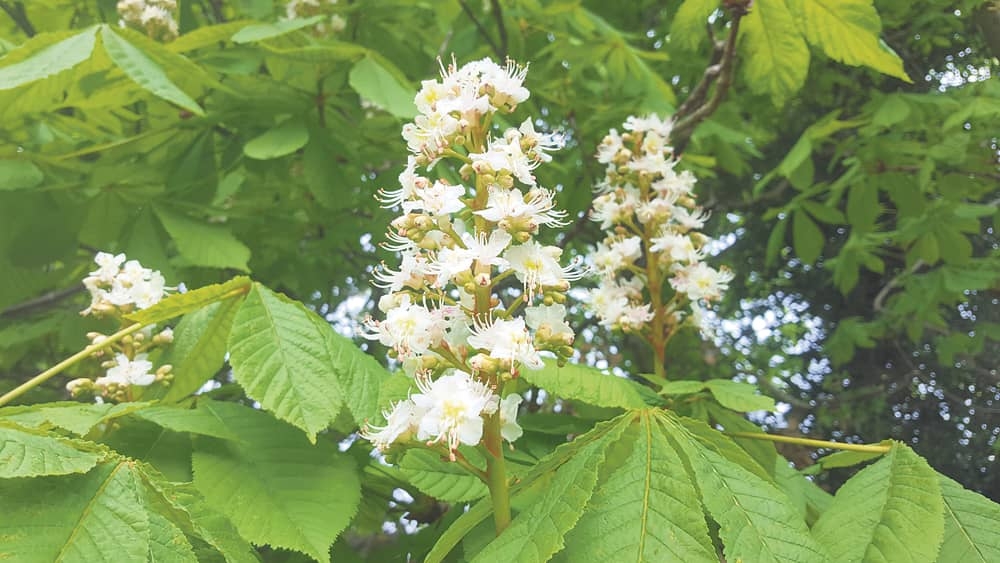
Nature on our doorsteps: Horse Chestnut ‘Candles’

By Rosaleen Dwyer
Rosaleen Dwyer is the County Heritage Officer at South Dublin County Council – every week she gives us an insight into the natural heritage around us and the beautiful biodiversity of the plants and creatures
The flowers of most of our native trees are not very noticeable.
This is because many of them are wind-pollinated and do not need large flowers to attract pollinating insects.

Horse Chestnut flower spikes are often called ‘candles’
This is a useful characteristic if you flower early in the year when insect numbers are not yet high enough to guarantee successful pollination.
One flowering tree that is very noticeable at the moment, however, is the Horse Chestnut.
This tree is not native to Ireland but came originally from the Balkans.
It was first introduced to Britain from Turkey in the 16th Century and as it has a tall, elegant appearance, it has been planted in large gardens and parks ever since.
Because Horse Chestnut evolved in its native land to flower early in April and May, it continues to do so here, even if the weather is not very suitable.

The dainty structure of the individual flower is often missed because the spikes are up high in the tree
Its spikes of white and pink-flushed flowers are sometimes referred to as ‘candles’, and these contrast very nicely with the lovely soft green of the tree’s new leaves.
These leaves are distinctive in having five large, toothed leaflets connected to a central point.
The flower spikes provide rich pollen and nectar to early honeybees and bumblebees.
Once they have been pollinated, these flowers develop into the spiky cases that hold the familiar autumn chestnuts, or conkers.
By subscribing to The Echo you are supporting your local newspaper Click Here: Echo Online.

